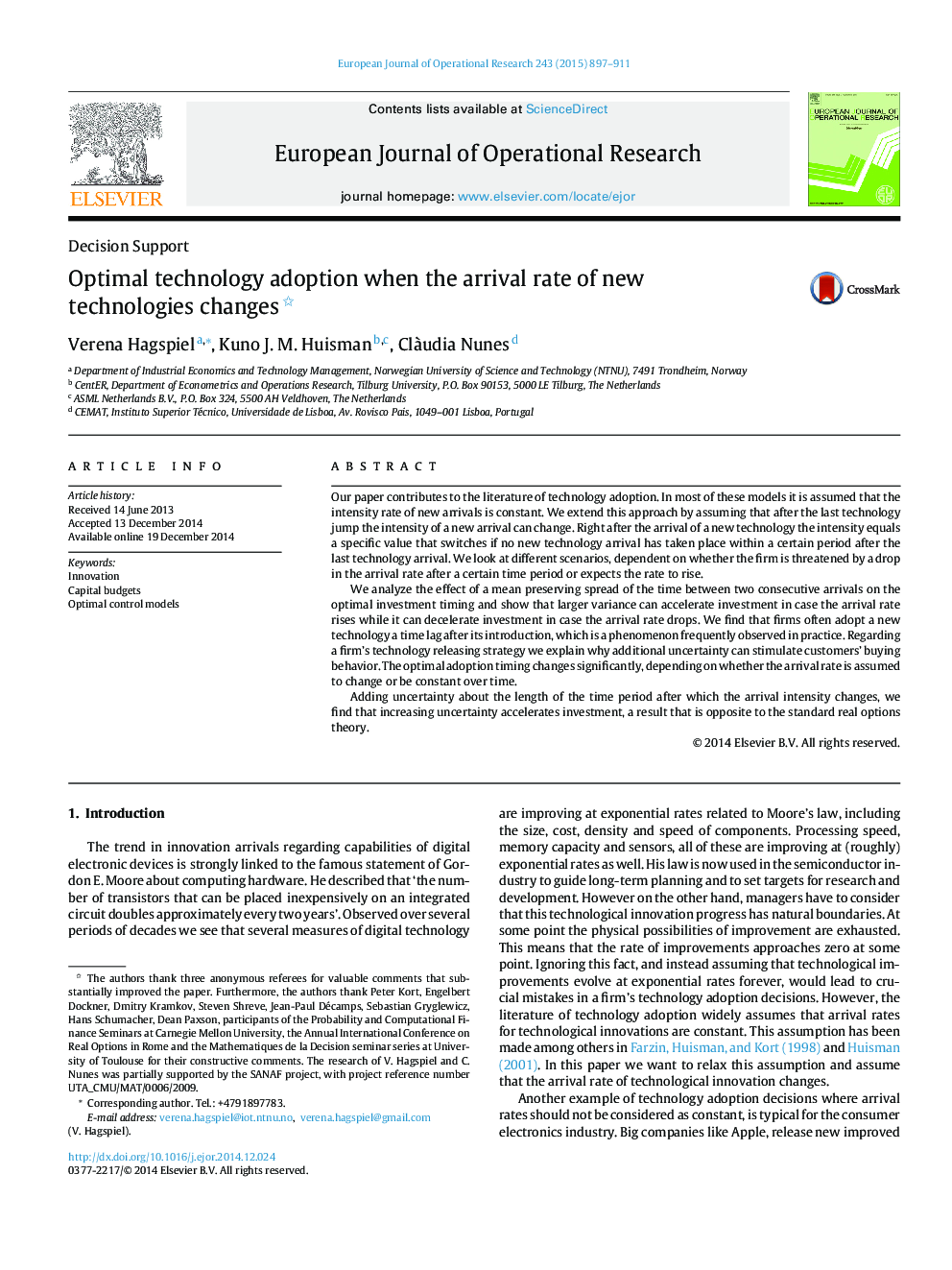| Article ID | Journal | Published Year | Pages | File Type |
|---|---|---|---|---|
| 478058 | European Journal of Operational Research | 2015 | 15 Pages |
•Extends technology adoption literature assuming changing technology arrival rate.•We find that firms often adopt a new technology a time lag after its introduction.•Adoption timing changes significantly for changing vs. constant arrival rate.•Additional uncertainty can stimulate customers’ buying behavior.•Increasing uncertainty accelerates investment in certain cases.
Our paper contributes to the literature of technology adoption. In most of these models it is assumed that the intensity rate of new arrivals is constant. We extend this approach by assuming that after the last technology jump the intensity of a new arrival can change. Right after the arrival of a new technology the intensity equals a specific value that switches if no new technology arrival has taken place within a certain period after the last technology arrival. We look at different scenarios, dependent on whether the firm is threatened by a drop in the arrival rate after a certain time period or expects the rate to rise. We analyze the effect of a mean preserving spread of the time between two consecutive arrivals on the optimal investment timing and show that larger variance can accelerate investment in case the arrival rate rises while it can decelerate investment in case the arrival rate drops. We find that firms often adopt a new technology a time lag after its introduction, which is a phenomenon frequently observed in practice. Regarding a firm’s technology releasing strategy we explain why additional uncertainty can stimulate customers’ buying behavior. The optimal adoption timing changes significantly, depending on whether the arrival rate is assumed to change or be constant over time. Adding uncertainty about the length of the time period after which the arrival intensity changes, we find that increasing uncertainty accelerates investment, a result that is opposite to the standard real options theory.
